Write a Personal Email to the Administration
By Oregon Forensics Forever | September 30, 2025
Our collective letters have had an effect — but now it’s time for individual alumni voices to be heard. Personal stories carry weight because they highlight the diversity of our generations, majors, and careers, all tied together by the impact of Oregon Forensics.
Below you’ll find detailed guidance on recipients, tone, and talking points to help you craft your own message. A steady stream of authentic emails over the coming weeks will keep Oregon Forensics Forever front and center at Johnson Hall.
Individual email guidance:
The purpose of sending an email is for the administration to see and hear from a variety of alumni from across the generations. To see the range of our interests and backgrounds. The variety of our professions and accomplishments. All united in appreciation of the role that a robust forensics department played in their undergraduate experience and in their daily lives as professionals.
Recipients
Tone and style
Please keep the tone positive overall. It is OK to express frustration or confusion and disappointment. Please do so. But avoid personal attacks or overwrought language.
Use the first person: “I” “my experiences”, etc. Personalize your communications.
Sign your email with your name, major, and graduation year (e.g. Angela Ramirez, Art History, 2001)
Potential talking points
Here are some talking points you might include to give your emails focus and impact. Please draw on your own experience and use your own voice. Authenticity is important.
These broad areas (e.g. value to students while undergraduates) include related specific expressions or examples. Use these or not as you wish. You should elaborate with your specific experiences and in your own voice.
Value of forensics to students
Critical thinking, advocacy, collaboration, learning catalyst, skills of enduring value, how to find answers to what you don’t know, dynamic, information evaluation, open minds and open ears (listening), information management and organization, argument and advocacy, confidence
Value of forensics after graduation
Use forensics skills in day-to-day work, increase productivity, achieve greater professional success and recognition, organizational leadership, effective teamwork, oral advocacy in professional settings, more reflective engagement with public affairs, and greater efficacy as a citizen and community member.
How I benefited from forensics educators and a stable program
Students must work hard but that work is more effective when developed in collaboration with a passionate and dedicated forensics educator. Talk about their influence and positive impact on your intellectual and personal growth and your success as a competitor.
Networking
Friendships and professional connections – explain how they are formed and used.
Hometown when coming to Oregon, especially if you were from out of state.
Did forensics play a role in your decision to go to Oregon?
If so, how so?
Were you a student in the Clark Honors College?
If so, describe the role of forensics in enriching your liberal arts education.
UO Advancement talking point
Does the decision have you questioning your plans to support the university in the future?
If CHC only: has this decision undermined your faith in the Clark Honors College?
Posted Under: News & Updates

